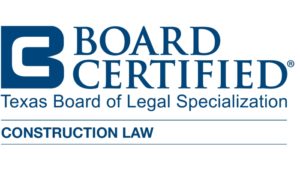Owning your own business can come with great reward, but it also carries risk. Chances are you will face at least one lawsuit while owning your business. Creating an entity will not prevent a lawsuit, but it can protect your personal assets so that even if your business is sued, a creditor can never touch your hard-earned assets. Asset protection is the primary reason to form an entity because it will create a layer of liability protection between your personal assets and your company’s assets. The law provides that an entity is a separate legal entity making it and its assets solely liable for its debts absent extenuating circumstances. Although you can use an internet online service to create an entity, all you will receive is a basic one-page Certificate of Formation that does not contain key asset protection provisions. Moreover, merely forming an entity is not enough. You need the complimentary documents that include sophisticated asset protection provisions beginning with the very first documents filed with the Secretary of State, continuing though to the Operating Agreement, specifically tailored to fit your specific needs. These documents work together to build a liability wall around your personal assets that would make Donald Trump smile. Further, an internet legal service will not provide: (1) advice on how to structure your business and investments to achieve an overall asset protection plan; (2) an attorney to serve as the organizer, initial member, and/or registered agent in order to maximize anonymity; (3) a sophisticated Company Agreement that deters creditors from taking control of your company; (4) advice on how to move property into the entity after it is formed; (5) advice on how to set up and arrange the entities finances, including accounts, injecting capital, or loaning money to the entity; and (6) advice on how to prevent a plaintiff from piercing the veil.
The corporate attorneys at Lovein Ribman are equipped to handle every obstacle or need you may face as a business owner, including without limitation, forming a new entity, merging with an existing entity, purchasing a new entity, taking care of all corporate governance issues, bringing in new owners, raising capital, and properly winding up the entity. We perform these services for all sizes of clients from small solo business owners all the way to publicly traded entities. If your company is need of forming a new entity or winding down an entity, please submit the Contact Form or call us at (888) 368-2483 for a free no-obligation consultation. Below is a brief discussion of entity structures, corporate documents and common questions.
Texas Entity Structures
There are several types of entities available, but the vast majority of businesses narrow their choice to the following four types of entities: (1) Limited Liability Company (LLC), (2) Series Limited Liability Company, (3) Corporation, and (4) a Limited Partnership. The advantages and disadvantages of each entity are listed below:
Limited Liability Company: Generally speaking, LLC’s are ideal for small businesses that need liability protections, don’t need to raise a lot of money from outside uninvolved investors (a corporation is more favorable for that), and want flexibility in how the business is managed and taxed. The LLC combines the best of a corporation (liability protection) and a partnership (ease of management and pass through taxation). The owners of an LLC are referred to as Members rather than shareholders or partners. The LLC is considered a separate legal entity that is independently liable for its own debts, rather than the owners being liable for the company’s debts. The LLC offers superior tax flexibility. There are three options in regard to how an LLC is taxed. You can opt for the “default rule”, elect to be taxed as an S Corp., or elect to be taxed as a C Corp. You make the selection when applying for an EIN number after forming the LLC. Under the default rule, the LLC is not taxed itself, rather the profits pass through to the members’ personal tax returns and are taxed at the members’ personal tax rates. That means that if the LLC made $100,000.00 in profit, the members would be taxed for the entire amount on their personal tax return. This can be disadvantageous if a member is in a higher tax bracket or wishes to leave some of that profit in the LLC rather than take it all as a distribution. By selecting to have the LLC taxed as an S or C Corp, the member(s) do not have to take all of the business income on their personal tax return. In almost all cases, the S Corp is the proper election if available because it allows you to avoid some of the double taxation that occurs on C Corp. Under a C Corp election, the LLC is taxed on its profit and then the member is taxed on all of its income, hence the term “double taxation.” The S Corp election allows the member to not be taxed on profit left in the LLC, as well as to split income between salary and distributions. The reason that is significant, is because under the default rule the LLC owners must pay a 15.3% self-employment tax on all of the LLC’s profits. By electing an S Corp status, members can give themselves a reasonable salary (subject to self-employment tax) and treat the remaining income as unearned distributions (not subject to the self-employment tax).
One of the drawbacks of a corporation is onerous corporate formalities with which owners are required by law to comply. Members of an LLC are not required to have periodic meetings with meeting minutes, or issue membership shares, although both are recommended. The members are required to file a short annual report with the state every year. Other than Corporations, an LLC is the easiest entity to raise capital. It is relatively easy to sell membership interests to investors without giving them control over the company. Outside investors generally prefer a corporation that issues stock because an LLC membership interest could increase their tax liability because of the pass-through nature. An LLC can never go public like a corporation.
Series Limited Liability Company: A Series LLC is a relatively new concept. It shares characteristics with the traditional Texas LLC, including the benefit of informal management, an effective liability shield, and taxation flexibility. In addition, a Series LLC allows the members to have several different “subcompanies” with separate assets and liability protection under the hood of one entity that greatly reduces the onerous banking, book keeping, and management of several different entities. These are particularly useful in real estate investment situations, where investors are looking to own multiple properties where traditionally you had to have a separate entity to hold each property for asset protection purposes. To be clear, each series is not considered its own legal entity under the Business Organizations Code, Texas Comptroller, or the Secretary of State. In this regard, the Texas Comptroller states that a series LLC is treated as a single legal entity, meaning it pays one filing fee and registers as one entity with the Texas Secretary of State. It further only files one franchise tax report as a single entity under its Texas taxpayer identification number. Nevertheless, each series is treated as its own entity in all other respects. An individual series is able to file and defend lawsuits; enter into contracts; buy, sell and hold title to property; grant liens and security interests; and “exercise any power or privilege as necessary or appropriate to the conduct, promotion, or attainment of the business, purposes, or activities of the series.” [BOC §101.605(5)]. A series can obtain its own EIN if it chooses and be treated separately for federal tax purposes. A series may have its own bank account. A series can (and should) operate under its own assumed name. Additionally, Section 1.201(b)(27) Business & Commerce Code was amended to include a series within the definition of a legal “person.” Good record keeping is both important and required. In fact, to protect the assets of each series from debts of other series, the members must maintain the assets associated with that series separated from the other assets of the company or any other series. [Tex. Bus. Orgs. Code § 101.601(b)(1)]. In other words, you must permit one to identify the assets of a by specific listing, category, type, quantity, or computational or allocational formula or procedure. [Tex. Bus. Orgs. Code § 101.603(b)]. One way to do that is to have a separate bank account for each series, but that is not required if you have a system with codes for each series that earmarks and allocates assets and expenditures as being of one particular series.
Corporations: A corporation’s owners are referred to as shareholders. As with an LLC, once a corporation is formed, its shareholders cannot be held personally liable for business debts or legal obligations absent veil piercing circumstances. A corporation can make a tax election to either be a C-Corp, which faces double taxation as the business is taxed when the company makes profits, and then those profits can be taxed again when shareholders are given dividends; or a S Corp where profits are only taxed once on the dividends to the shareholder. S Corp taxation should always be elected if you meet the criteria. A major pitfall of a corporation is that they require the most paperwork. Corporations must hold annual board meetings and shareholder meetings. Most decisions in running the corporation must be made by a formal vote and documented in meeting minutes. You should keep meeting minutes, as well as other documents such as stock ledgers, at your business location in a Company Book. In addition, corporations are required to submit an annual report. Meeting these requirements can take a significant amount of time and expense. A benefit of being a corporation is that it is easiest for a corporation to raise money because it can issue stock very easily without giving over control. Investors can get a piece of the pie without facing liability for the corporation’s mistakes or added tax burden as in pass through entity scenarios. C Corps are better situated for raising money than S Corps because C Corps allow multiple classes of stock and have no limit on the number of shareholders. Thus, if an entity plans on going public at any point in the future, a C Corp should be the selection even if it means facing potential double taxation.
Limited Partnership: A general partnership is the default and is not considered a registered entity. Partners in a general partnership are jointly and severally liable for all partnership debts. There is no asset protect and it is no different than a sole proprietorship from a liability perspective. A limited partnership on the other hand offers more liability protection than a general partnership because it creates two classes of partners. General partners run the business and assume liability for the partnership. Limited partners invest in the business but don’t participate in its day-to-day management and are not liable for the partnership’s debts. Limited partnerships are taxed similarly to general partnerships, except limited partners do not have to pay a self-employment tax because they are not involved in running the business. Typically, an LLC or corporation will serve as the general partner of the limited partnership to ensure there is asset protection for the general partners running the company. This extra layer of liability shield does have the appearance of being better than just a normal LLC. However, they are complicated structures with more onerous management and bookkeeping requirements. Since Texas Courts have shifted to requiring actual fraud to pierce the corporate veil, the popularity of limited partnerships have declined because the actual fraud rules makes piercing the corporate veil more difficult and thus the added layer of perceived asset protection by the LP with a corporate general partner is often seen as not worth the added burden of having two entities to manage.
Entity Related Documents
The entity documents govern the relationship between the owners of the Company, including the following: distributions of profits, decision making within the entity, structure of the entity, transferring of ownership interests, adding owners in the future, raising capital, what happens if unexpected adverse circumstances happen to an owner such as disability, incapacity, or divorce, and finally they provide for the winding up of the entity under certain circumstances. Properly forming your entity is just the start of the process to creating a formidable liability barrier for your personal assets. While the default rule is that a properly formed entity is a separate legal entity and solely liable for its debts (See Business Organizations Code § 101.114 for LLC’s and § 21.223 for Corporations), there are extenuating circumstances that allow a creditor to “Pierce the Corporate Veil” and pursue individual owners for company debts.
Company/Partnership/Shareholders Agreement
Just forming your entity is not enough, you need a governing agreement to ensure your interest in the company is protected. The company, partnership, or shareholder agreement, depending upon your entity governs the internal operations of the entity. If your entity is an LLC, then the document is referred to as a Company Agreement. If your entity is a partnership, then your document is referred to as a Partnership Agreement. A corporation on the other hand has two documents that govern its internal operations, a Shareholder Agreement (Buy Sell Agreement) and bylaws. These documents should be designed to maximize asset protection and will be one of the first documents produced in discovery if the company is sued, since it is not recorded with the Secretary of State or anywhere else. The plaintiff will seek to find out if one exists and if it contains any provisions that may be an impediment to recovery from the company or the individual owners. Therefore, you need a customized agreement to fit your circumstances that will protect you. While all of these agreements have provisions that are unique to them, they all should address certain key situations including but not limited to:
- Decision Making: The governing agreement should define what constitutes quorum, which is the percentage of owners or ownership interests needed to be present and to vote on certain actions by the company.
- Ownership Rights: The Agreement should clarify what rights and obligations owners have.
- Divorce/Death/Incapacity of an Owner: The Agreement should clarify what happens in the unfortunate event one of these circumstances occurs. Without it, should an owner get divorced, you may be dealing with a new partner that is your old partner’s ex-spouse. There should be a method or formula for calculating the value of the ownership interest and terms for how it is paid. This leaves less room for a dispute in the future.
- Classes of ownership interests: The Agreement should list if there are different classes of ownership interests. For example, LLC’s can have two classes of membership: Class A members who are your typical owners and Class B members who are defined to be any persons who gain membership or influence by means of a court judgment, execution upon a judgment, assignment of a membership interest in satisfaction of a debt, charging order, or contested divorce. Class B members have very few rights in the company–basically the right to receive notices and be present at meetings. Importantly, the Agreement should provide they cannot vote. This structure assures that members do not wind up in a disastrous partnership with other members’ creditors, since these persons are usually seeking to dissolve the company or sell off its assets for cash.
- Restrictions on sale or transfer of ownership interests: Except in large corporations, it is recommended that the agreement include a provision that no owner may assign, convey, sell, encumber or in any way alienate all or any part of their ownership interest without the prior written unanimous consent of all the other owners. Including a provision of this kind is critical to the successful operation of a small company.
- Dispute resolution: The Agreement should provide that the owners mediate their disputes prior to resorting to arbitration.
- Capital Contributions: The Agreement should document any capital contributions by the owners and how they will be repaid.
- Management of the Company: The Agreement should memorialize the corporate structure of the Company, how it will be managed, and how the individuals who manage the entity will be elected. For example, will the LLC be member-managed or manager managed.
- Distributions: The Agreement should provide how and when distributions or dividends will be paid to the owners.













